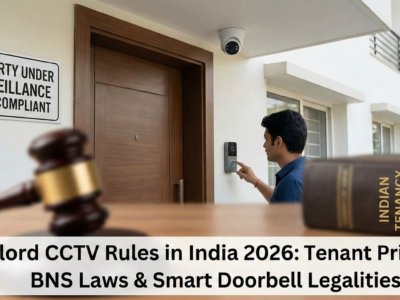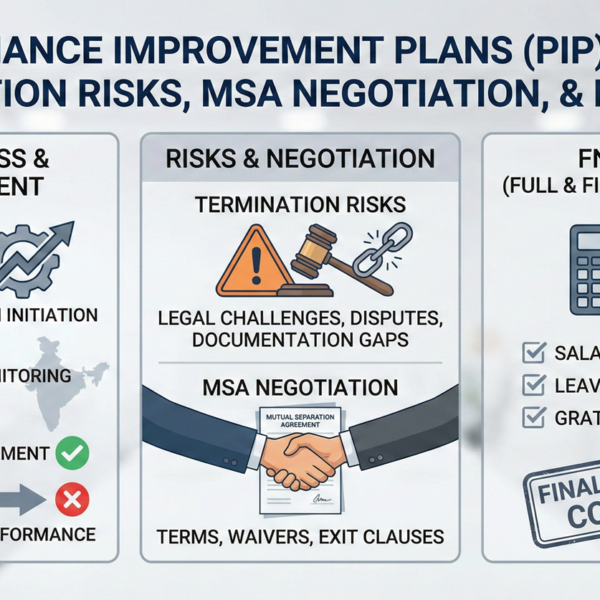India’s marriage laws are a mix of diverse personal laws and secular civil statutes, creating a complex legal environment, especially concerning second marriages. This detailed guide from Evaakil.com simplifies the law, offering a comprehensive analysis of the legal rights of a woman in a second marriage. We break down her entitlements regarding maintenance, property, residence, and children’s rights, distinguishing between a void marriage under Hindu law and a valid marriage under Muslim law. Our goal is to provide clarity and empower you with essential legal knowledge, backed by recent judicial precedents and clear legal recourse options.
Evaakil.com
Legal Rights of a Second Wife in India: A Comprehensive Analysis
An in-depth look at the complex legal landscape governing second marriages in India.
The Legal Dichotomy: Bigamy vs. Polygamy
Bigamy Prohibited
Hindu, Christian, Parsi, Special Marriage Act
A second marriage without divorcing the first is a criminal offense, making the second marriage "null and void."
Polygamy Permitted
Muslim Personal Law
A Muslim man can marry up to four women, provided he can ensure equal and fair treatment.
1. Introduction: Overview of Marriage Laws in India
India's legal framework for marriage is characterized by a complex interplay of diverse personal laws and secular civil statutes. This duality means that the legal standing and entitlements of individuals in marital relationships, particularly in cases involving a second marriage, are highly dependent on the religious affiliation of the parties or the specific Act under which the marriage was solemnized. This report aims to provide a comprehensive analysis of the legal rights, entitlements, and remedies available to a woman considered a "second wife" in India, navigating the intricacies of this multi-layered legal system.
A fundamental principle underpinning Indian marriage law for the majority of its citizens is monogamy. This principle dictates that an individual cannot legally enter into a second marriage while their first marriage remains legally valid and undissolved. This foundational tenet is crucial for understanding why second marriages, in most contexts, are deemed legally invalid and how this invalidity profoundly impacts the rights of a woman in such a union. The consistent emphasis on monogamy across various personal laws and secular civil law establishes this as a primary legal standard, setting the stage for a detailed examination of the consequences that arise when this principle is contravened.
2. Legality and Validity of Second Marriages in India
The validity of a second marriage in India is primarily determined by the personal laws applicable to the individuals involved or by the Special Marriage Act, 1954, if they opt for a civil ceremony.
Prohibition of Bigamy
For the majority of communities in India, bigamy—the act of marrying someone while still legally married to another person—is strictly prohibited and constitutes a criminal offense.
Under the Hindu Marriage Act, 1955 (HMA)
The Hindu Marriage Act, which governs Hindus, Sikhs, Buddhists, and Jains, explicitly enforces monogamy. Section 5(i) of the HMA stipulates that for a marriage to be valid, "neither party has a spouse living at the time of the marriage". Any marriage solemnized in violation of this condition is declared "null and void" (void ab initio) under Section 11 of the Act, meaning it holds no legal standing from its very inception. Furthermore, Section 17 of the HMA specifies that any Hindu who marries again during the lifetime of their spouse, without obtaining a legal divorce, commits bigamy.
Under Other Personal Laws (Christian and Parsi)
The Indian Christian Marriage Act, 1872, and the Parsi Marriage and Divorce Act, 1936, similarly mandate monogamy. For Christians, if a former spouse was alive and the marriage was in force at the time of a subsequent marriage, this serves as a ground for annulment or nullity under Section 19(4) of The Divorce Act, 1869. The Parsi Marriage and Divorce Act, 1936, strictly prohibits polygamy, rendering any second marriage without legal dissolution of the first null and void and subject to criminal prosecution.
Under the Special Marriage Act, 1954 (SMA)
The Special Marriage Act, designed for inter-religious marriages or those opting for a civil ceremony, also strictly requires monogamy. Section 4 of the SMA mandates that "neither party has a spouse living" at the time of marriage. A violation of this provision renders the second marriage void and exposes the offending party to criminal prosecution.
Criminalization of Bigamy
Bigamy is a criminal offense punishable under Indian law. Section 494 of the Indian Penal Code (IPC), now replaced by Section 82(1) of the Bhartiya Nyaya Sanhita, 2023 (BNS), prescribes imprisonment of up to seven years and a fine for bigamy. If the existence of the first marriage is concealed from the second spouse, the punishment can be even more severe under Section 495 IPC (now Section 82(2) BNS), potentially extending to ten years. The Supreme Court, in *Baba Natarajan Prasad v. M. Revathi (2024)*, underscored the importance of proportional punishment for bigamy, emphasizing its broader societal impact.
Landmark Judgments on Bigamy
The Supreme Court has consistently reinforced the prohibition of bigamy. In *Lily Thomas v. Union of India (2000)*, the Court unequivocally held that a second marriage solemnized without the dissolution of the first is void ab initio. A significant precedent was set in *Sarla Mudgal v. Union of India (1995)*, where the Court addressed the issue of a Hindu man converting to Islam solely to marry a second time without divorcing his first wife. The Court held that such a conversion does not dissolve the first marriage, and the man would still be guilty of bigamy. This ruling emphasizes that individuals cannot circumvent legal obligations through religious conversion.
Permissibility under Muslim Personal Law
Muslim Personal Law stands as a significant exception to the general monogamy rule prevalent in India.
Conditions and Obligations for Muslim Men
The Muslim Personal Law (Shariat) Application Act, 1937, allows a Muslim man to marry up to four women concurrently without needing to provide a specific reason. This permission is rooted in Quranic guidance (Surah An-Nisa 4:3), which allows for up to four wives provided the husband can ensure equal treatment and fairness for each wife and their children. This includes providing equally for financial needs (food, clothes, housing, daily expenses), dividing his time equally among them to ensure adequate attention and companionship, and maintaining emotional and psychological fairness without showing favoritism or bias. Financial capability is a crucial prerequisite, as Prophet Muhammad (PBUH) emphasized the importance of supporting multiple wives and warned against injustice and hardship if this condition is not met.
Restrictions for Muslim Women
Unlike men, a Muslim woman is not permitted to marry another man as long as her husband is alive; doing so would constitute a violation of Section 494 IPC.
Status of a Void Second Marriage
For communities where bigamy is prohibited, a second marriage contracted during the subsistence of the first is considered "null and void" or "void ab initio." This means the marriage is legally non-existent from its inception, and the parties involved do not acquire the marital rights or obligations that typically arise from a valid marriage.
3. Rights of a Second Wife in a Void Marriage (Non-Muslim Context)
When a second marriage is legally void, particularly for individuals governed by the Hindu Marriage Act, the second wife's legal status is significantly impacted. While she is not recognized as a legally wedded wife, evolving jurisprudence has carved out certain protections and remedies.
Comparative Rights Chart
Hover over the chart to see a detailed breakdown of rights for a second wife.
Maintenance Rights
Traditionally, Indian courts held a restrictive view, stating that a second wife whose marriage was void due to the husband's existing marriage had little legal protection and was not entitled to maintenance under Section 125 of the Criminal Procedure Code (CrPC). However, a significant legal shift has occurred under the Hindu Marriage Act, 1955 (HMA). Section 25 of the HMA allows courts to grant permanent alimony and maintenance "even in cases of void marriages". The Supreme Court, in *Sukhdev Singh v. Sukhbir Kaur (2025)*, explicitly ruled that a spouse in a void marriage can claim permanent maintenance under Section 25 HMA, emphasizing that "the right to maintenance does not depend on the morality of the bigamous marriage". This ruling also confirmed that interim maintenance (maintenance pendente lite) can be granted under Section 24 HMA during proceedings, provided the applicant lacks sufficient independent income. Courts have increasingly recognized the financial rights of women deceived into void marriages. The Supreme Court in *Badshah v. Urmila Badshah Godse (2013)* ruled that a second wife, if deceived into the marriage, is entitled to maintenance, as the husband should not benefit from his fraud. The Delhi High Court's 2024 ruling in *Priya Sharma v. Rajesh Sharma* further clarified that a second wife whose marriage is void due to her husband's pre-existing marriage can claim maintenance if she was unaware of his first marriage.
Property and Inheritance Rights
In contrast to maintenance rights, property and inheritance rights for a second wife in a void marriage are significantly more restricted. If a Hindu man remarries without divorcing his first wife, the second marriage is void, and the second wife generally has no legal status as his spouse. Consequently, she typically has no right to inherit any property of her husband. This applies unless the husband explicitly made a will in her favor. While statutory law generally denies direct inheritance for void marriages, equitable principles may offer some recourse. If the second wife can prove she contributed financially to the acquisition of joint property, she may be able to file a civil suit to claim her rightful share based on principles of equity.
Residence Rights
The Protection of Women from Domestic Violence Act, 2005 (DV Act), provides a crucial avenue for residence rights, extending protection beyond legally wedded wives. The Act broadly defines a "domestic relationship" to include "a relationship in the nature of marriage" (Section 2(f)). This allows a woman in such a relationship, including a "second wife" whose marriage is void, to seek residence rights in a "shared household" (Sections 2(s) and 17). The Act aims to protect women from violence irrespective of the specific legal status of their relationship. However, there are conflicting High Court interpretations regarding the DV Act's applicability once a marriage is declared void. This legal ambiguity creates uncertainty for women seeking protection and indicates a need for Supreme Court clarification or legislative amendment.
4. Rights of a Second Wife in a Valid Marriage (Muslim Context)
As previously established, Muslim Personal Law provides a distinct framework that permits polygyny for men under specific conditions, making it a notable exception to the general monogamous legal landscape in India.
Equal Rights to Maintenance, Mehr (Dower), and Inheritance
If a second marriage is legally valid under Muslim Personal Law (i.e., the husband has not exceeded the limit of four wives and meets the prescribed conditions for equitable treatment), the second wife enjoys equal rights to maintenance, Mehr (dower), and inheritance as the first wife. This ensures parity among all wives within a polygamous union, emphasizing the principle of fairness within the legal framework.
Obligations of the Husband for Equitable Treatment
Islamic law places stringent obligations on the husband to treat all his wives equally. This comprehensive requirement extends to providing equally for their financial necessities, including food, clothes, housing, and other daily expenses. Furthermore, the husband is obligated to divide his time equally among his wives to ensure each receives adequate attention and companionship. Maintaining emotional and psychological fairness, without showing favoritism or bias towards any one wife, is also a critical aspect of these obligations. The importance of financial capability to support multiple wives was profoundly emphasized by Prophet Muhammad (PBUH), who warned against injustice and hardship if this condition is not met.
5. Legitimacy and Rights of Children from Second Marriages
A crucial protective aspect of Indian law is the legal recognition of children born from void or voidable marriages as legitimate. This provision reflects a deliberate legislative intent to protect innocent children from the legal consequences of their parents' invalid marriage, preventing their "bastardization" and ensuring their fundamental rights to identity and support.
Legitimacy
Children born from void or voidable marriages are considered legitimate. This is explicitly provided under Section 16 of the Hindu Marriage Act, 1955, and Section 26 of the Special Marriage Act, 1954. Muslim Personal Law also recognizes the legitimacy of children born from polygamous marriages. This legal stance is designed to protect innocent children from being penalized due to the invalidity of their parents' marriage.
Inheritance Rights
Children from void or voidable marriages possess a lawful and legitimate right to inherit from the property of their parents (father or mother). They can inherit from their father's self-acquired property and his share in ancestral property, but generally not directly from the ancestral joint family property beyond their father's allocated share. The Supreme Court, in *Revanasiddappa v. Mallikarjun*, affirmed that children born in illegitimate relationships or void marriages are innocent and entitled to all rights to property to which their parents are entitled, whether ancestral or self-acquired. These children hold equal rights as the children of the first wife on their father's property.
Infographic: The Lifecycle of a Bigamy Case
Discovery & Complaint
First wife discovers the second marriage and files a complaint under Section 494 IPC/BNS.
Legal Proceedings
The husband faces criminal prosecution, while the second wife may initiate a civil annulment suit.
Outcome & Remedies
Husband may face imprisonment. The second wife may be granted maintenance and residence rights.
Legal Framework Comparison: Filterable Table
Use the search bar to filter the comparison table below by keyword (e.g., "Hindu," "bigamy," "maintenance").
| Personal Law/Act | Legality of Second Marriage | Status if Invalid | Key Conditions/Exceptions |
|---|---|---|---|
| Hindu Marriage Act, 1955 | Prohibited/Monogamous | Null and Void; Criminal Offense | No spouse living; Deception for maintenance |
| Indian Christian Marriage Act, 1872 | Prohibited/Monogamous | Null and Void; Criminal Offense | Similar to HMA |
| Special Marriage Act, 1954 | Prohibited/Monogamous | Null and Void; Criminal Offense | No spouse living; Civil marriages |
| Muslim Personal Law | Permitted (Polygamous for Men, up to 4 wives) | Valid (if conditions met) | Equal treatment, financial capability |
| DV Act, 2005 | N/A | N/A | Covers "relationship in the nature of marriage" for residence rights |
Judicial Trends: Protecting the Deceived Second Wife
Maintenance Rights
From a strict denial to a more equitable approach, especially for deceived wives.
Residence Rights
The DV Act's broad definition now offers protection, but legal clarity is still needed.
Criminal Liability
Increased focus on punishing the husband for bigamy and fraud.
Children's Rights
Legal legitimacy and inheritance rights are now firmly established.
Legal Recourse Decision Tree for a Second Wife
Start: You are in a second marriage.
Was the husband's first marriage legally dissolved (divorce or death of first wife)?
Your marriage is legally valid.
You have full rights to maintenance, inheritance, and residence. Your children are legitimate.
Your marriage is void.
Your legal status as a wife is limited. You must pursue specific remedies.
Were you aware of the first marriage?
Limited Recourse
You may face difficulties in claiming maintenance and other rights as you were aware of the void nature of the marriage.
Fuller Recourse Available
You can seek a variety of remedies to protect your rights, as you were a victim of fraud.
File for Maintenance
Claim maintenance under Section 25 HMA and/or the DV Act.
Initiate Criminal Case
File a complaint for bigamy and fraud under Section 494/495 IPC/BNS.
Seek Residence Order
Apply for a residence order for a "shared household" under the DV Act.
Annul the Marriage
File a petition under Section 11 HMA to formally declare the marriage void.
Children's Rights
Your children are legitimate and have full rights to inheritance and maintenance from their father.
Civil Suit
Pursue a civil claim to recover financial contributions or damages for fraud.
6. Legal Remedies and Recourse for a Deceived Second Wife
A woman who unknowingly enters into a void second marriage due to the husband's concealment of his prior marriage has multiple legal avenues for redress, encompassing annulment, criminal proceedings, and civil suits for damages or financial recovery.
Annulment of Marriage
A second wife who discovers her husband was already married can file a petition to have her marriage declared null and void under Section 11 of the Hindu Marriage Act. This legal action formally invalidates the marriage from its inception, providing a clear legal separation from the void union.
Criminal Proceedings Against the Husband
The deceived second wife can initiate criminal proceedings against the husband for bigamy under Section 494 IPC (now Section 82(1) BNS). If the husband concealed the existence of his first marriage from the second spouse, he can be charged under Section 495 IPC (now Section 82(2) BNS), which carries a more severe penalty. Furthermore, Section 493 IPC specifically punishes a man who, by deceit, causes any woman not lawfully married to him to believe she is lawfully married to him and to cohabit or have sexual intercourse with him in that belief.
Civil Suits for Damages or Recovery of Financial Contributions
As detailed in Section 3, a deceived second wife can claim maintenance under Section 25 HMA, as affirmed by the Supreme Court in *Sukhdev Singh v. Sukhbir Kaur* and the Delhi High Court in *Priya Sharma v. Rajesh Sharma*. If the second wife contributed financially to the acquisition of joint property, she may be able to file a civil suit to claim her rightful share, based on principles of equity. Additionally, victims of matrimonial fraud can pursue civil claims, such as the tort of deceit or fraudulent misrepresentation, to recover financial losses incurred due to the husband's deceptive activities. Remedies in such cases typically aim to restore the claimant to their original financial position before the fraud occurred.
Seeking Protection and Remedies under the Domestic Violence Act, 2005 (DV Act)
As previously discussed, the DV Act provides a crucial avenue for a second wife to seek residence rights in a shared household and other protections, provided her relationship can be characterized as "in the nature of marriage". She can also file for maintenance under Section 144 of the Bharatiya Nagarik Suraksha Sanhita, 2023.
7. Consequences for the Husband in Bigamous Marriages
A husband who contracts a bigamous marriage, unless specifically permitted by personal law (as in the case of Muslim men under certain conditions), faces significant criminal and civil repercussions.
Criminal Penalties
Such a husband faces severe criminal penalties, including imprisonment of up to seven years under Section 494 IPC (now Section 82(1) BNS) and a fine. If the husband concealed the existence of his first marriage from the second spouse, the penalty can be even more stringent, extending to ten years under Section 495 IPC (now Section 82(2) BNS). Recent judgments, such as *Baba Natarajan Prasad v. M. Revathi (2024)*, underscore the judiciary's commitment to imposing proportional punishment for serious offenses like bigamy.
Civil Liabilities
The husband can be compelled to pay maintenance to his first spouse under Section 144 of the Bhartiya Nagarik Suraksha Sanhita, 2023, or other relevant personal laws. Crucially, despite the void nature of the second marriage, the husband can also be held liable for maintenance to the second wife, particularly if she was deceived into the marriage, as per Section 25 HMA and recent landmark judgments. The second marriage itself can be declared null and void by a court decree, effectively stripping it of any legal recognition. The husband may also face civil suits initiated by the deceived second wife for damages or recovery of financial contributions she made during the period of the void marriage.
8. Conclusion and Key Takeaways
The legal landscape concerning second wives in India is intricate, characterized by the interplay of diverse religious personal laws, secular civil statutes, and dynamic judicial interpretations. While monogamy stands as the predominant legal norm, criminalizing bigamy for most communities, Muslim personal law presents a notable exception allowing polygyny under specific conditions. This duality creates a complex legal environment where rights and remedies vary significantly based on the applicable law and the specific circumstances of the marriage.
Recent landmark judgments signify a progressive shift in Indian jurisprudence. Courts are increasingly adopting an empathetic and equitable approach, particularly towards women who are victims of bigamous or fraudulent marriages. This judicial activism has carved out crucial rights, especially regarding maintenance under the Hindu Marriage Act and residence under the Domestic Violence Act, even when the marriage itself is legally void. This reflects a commitment to social justice over strict legal formalism, aiming to safeguard the financial and social security of vulnerable women.
Given the intricate and often conflicting legal provisions, judicial precedents, and the varying applicability based on religious affiliation and marital circumstances, individuals involved in or affected by second marriages are strongly advised to seek expert legal counsel. Professional guidance is essential to understand specific rights, obligations, and the most effective legal remedies available in their unique situation. The ongoing judicial discourse, particularly concerning the interpretation of personal laws vis-à-vis constitutional principles, and the broader societal debate around a Uniform Civil Code, suggest a continued evolution in Indian family law. This trajectory may lead towards greater uniformity, gender-neutral principles, and enhanced protections for all parties within marital and quasi-marital relationships in the future.









